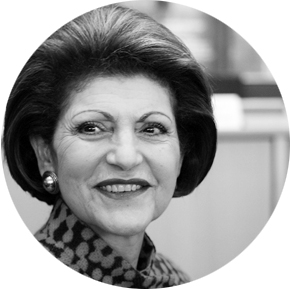Exclusive interview of European Commissioner for Education, Culture, Multilingualism and Youth Androulla Vassiliou to Mediamax
Informal meetings of Foreign and Education Ministers of the Eastern Partnership countries will be held in Yerevan on September 12-13. On the eve of the meetings Mediamax talked to
European Commissioner for Education, Culture, Multilingualism and Youth Androulla Vassiliou.
- How important is the education in EU's relations with Eastern Partnership countries and what priority issues will your meetings focus on in Yerevan?
- The Eastern Partnership countries are at the centre of our cooperation to support democratic and economic reforms. Your countries are also priority partners for international academic cooperation with the European Union. The EU has already demonstrated its commitment to its Eastern neighbours by increasing funding for our Tempus and Erasmus Mundus education programmes in 2011-2013, and by expanding eTwinning to enable schools in your countries to cooperate via internet platforms with counterparts in the EU.
Since 2004, hundreds of institutions and nearly 6,000 students and staff in the region have benefited from Tempus and Erasmus Mundus, which have been instrumental to the reform and modernisation of higher education systems and institutions in your region.
We have also initiated a dialogue on education, training and youth policies with your ministries as part of the so-called 'Platform 4' of the Eastern Partnership, dedicated to "contacts between people". The EU is determined to do more through Erasmus+, our new programme for education, training, youth and sport. Erasmus+ will encompass all our existing education mobility schemes, including Tempus and Erasmus Mundus. It is due for launch in January 2014.
During this week's educational session of the Informal Eastern Partnership Dialogue, we will take stock of progress in the reform of higher education systems and our cooperation to date. We will discuss the new opportunities that will arise through Erasmus+ and the Marie Skłodowska Curie Actions, which support researchers. We will also focus on other pressing issues including quality in education, the need for higher education to internationalise and the mobility of students and staff.
- What aspects of education the Armenian authorities should pay special attention to for the country to remain competitive in the world?
- Education, and in particular higher education, has an increasingly international dimension, and the type of dialogue we are having in the framework of the Eastern Partnership is extremely valuable. We have a great deal to learn from each other, and cooperation through projects helps us address challenges such as the quality of education and the need to ensure that the content of university courses more closely reflects the needs of the labour market. These issues are critical for higher education in both the EU and Armenia.
I know that these challenges are already high on Armenia’s higher education reform agenda. Since Armenia joined the Bologna Process (aimed at ensuring comparability in the standards and quality of qualifications) in 2005, higher education has moved forward. I would in particular mention the implementation of the three-cycle higher education system (bachelor, master, doctorate), the use of the European Credit Transfer and Accumulation System to facilitate recognition of studies, and work to develop the National Qualifications Framework in line with the European Qualifications Framework (EQF).
In school education, our priorities are very similar: to improve education quality, in particular by raising teaching standards, combatting illiteracy and reducing the number of early school leavers.
- In September 2014, Dilijan International School which construction attracted over $ 120mln from private investors will open in Armenia. The school will be included in the United World Colleges (UWC) family which will allow accepting pupils from over 130 countries of the world. What can the EU do to support such large-scale educational projects in Armenia?
- I wish the best of success to Dilijan International School. One of the missions of the United World Colleges is to support international and intercultural understanding, which are at the core of EU education policy.
Regarding EU support to Eastern partnership countries in school education, I would like to highlight our eTwinning initiative for schools. Since it was opened to Eastern partnership countries in March 2013, 22 schools, 100 teachers and 27 projects have registered. Some 15 schools from Armenia are already involved in eTwinning projects – this is a great result!



























Comments
Dear visitors, You can place your opinion on the material using your Facebook account. Please, be polite and follow our simple rules: you are not allowed to make off - topic comments, place advertisements, use abusive and filthy language. The editorial staff reserves the right to moderate and delete comments in case of breach of the rules.